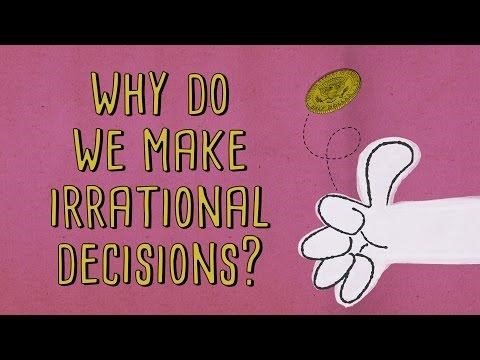Sometimes, perfectly sensible, intelligent and rational colleagues reject or resist rational, perfectly sensible and intelligent ideas. Have you ever wondered why this happens? Obviously, this does not happen because they are stupid. This happens because there is something going on that we can’t realize.
We can use an example of a large, and overcrowded urban hospital that is trying to free up beds by reducing long patient stays. An analysis showed that one floor never seemed to be discharging patients during the weekend.
When the administration and the nursing teams were asked about the data, the head nurse said that she did not support any attempts of increasing weekend discharges. She added that it was not a good time for patients to be discharged from the hospital.
From the surface, the decision of the head nurse didn’t make any sense. Eventually, the nurse shared the fact that a few years back, a few patients lost valuable things during weekend discharges.
She did this to ensure that the belongings of the patients could only be removed from the safe in her presence. The nurse kept the only key, and she did not come to work on weekends.
If you told someone rational this story, they would laugh thinking that the nurse was stupid, but in the real sense, the nurse did what she thought was best for the patients. This made the nurse appear irrational to others.
Once the motivation and the history behind her decision were revealed, the decision made sense. This prompted a review of the discharge procedures and how to secure the personal property of patients.
Irrational Behavior
It is essential to understand that irrational behavior is normal and part of the human condition. There are a lot of things that we know we need to avoid, but we still do them anyway. And there are also lists of good things that we know we should do, but we still avoid them.
This is why, despite knowing that cigarettes are bad, people still smoke cigarettes. People still drink alcohol and drive, and people still don’t floss their teeth.
Unconsciously or consciously, we have reasons for our actions that most people don’t understand and think that our actions are irrational. Some of the reasons why we do irrational things include lifestyle, convenience, peer acceptance and many more.
Irrational Behavior in an Organization
Organizations are composed of different people and all the people in an organization act irrationally at different times. This is the reason why we often encounter a boss, colleague or subordinate staff that can’t consider a suggestion that is completely reasonable. If you ever find yourself in this situation, you should use the following guidelines.
Don’t try to use Rationality to Fight Irrationality
When you try to use rationality to fight irrationality, it will make you more frustrated, and the other person will become more defensive. You may offer well informed and constructed arguments, but you will never win. The best way to go about it is to understand the motivation that is driving the other person to make the kind of decisions they make.
Focus on Understanding the Rationale of the Other Person
Even if you are being driven by the unconscious motivations of the other person, it is important to figure them out. Being resistant to apparent logic will always come from somewhere, and you will not be able to break through until you get to understand the underlying reason.
For instance, salespeople will resist straightforward and logical model changes because they fear that the compensation will be affected. Or maybe they fear that their relationship with customers will be harmed. You must understand and deal with the main issues to make headway.
Don’t take it Personally
Sometimes, our emotions can be blazing with anger, helplessness, frustration or confusion when we deal with irrational behavior. The actions of other people can make us confused, and we may want to label them hostile, insecure, miserable and inferior.
What can happen is that we start to see the person in that color and even trap them in a stereotype with a label that is self-fulfilling. You should not hold resentment of people you work with because it punishes you the same way it punishes them.
You will not be able to change relationships by trying to control the behavior of other people, but you can only change yourself in relation to them. Try not to place your energy in deriding and blaming someone, rather, you should focus on finding a more productive interaction with them.
It is not always easy to go back for more of the same mistakes concerning someone time after time. You should try and change something/
Don’t Focus on Positions
Basic communication problems lay not so much in conflicting positions. It lies in the conflict between every person’s needs, concerns, desires, and fears. One person may think that the other person is a perfectionist in everything they do, but this may just be an opinion of that person.
Sometimes, interests make people act the way they act. The underlying interests may be a fear of competition, lack of training and so on. Sometimes, we think that when people act irrationally, they are trying to compete with us when in the real sense they are just doing their job. Your perception is what enables conflict to arise. Sometimes, interests motivate us and are silent movers behind our positions.
If you want to achieve a solution to a problem, you should try to reconcile interests and not positions. There exist several possible solutions for every interest that could satisfy it. However, people tend to adopt the most obvious position.
You can find an alternative position that meets both your interests and other people’s interests when you look behind some opposed positions for motivating interests. When we should reconcile our interests and avoid compromising positions because this can work. Under positions that oppose each other lies more interests than the ones that conflict.
